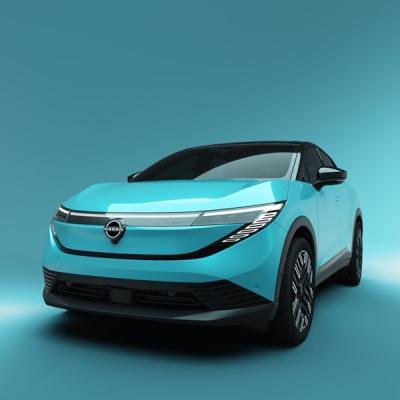2025 Nissan Leaf Marks Major Redesign
16/06/25
This year marks a major evolution for one of the most recognisable electric vehicles on the road — the all-new Nissan Leaf. But this isn’t just a facelift. Nissan is taking the Leaf in a bold new direction, transforming it from a compact hatchback into a high-riding crossover SUV.
First revealed in concept form in March, the third-generation Leaf is expected to enter full production in the second half of 2025.
The Nissan Leaf made history back in 2011 as one of the first mainstream electric vehicles available to the public. Its second generation arrived in 2018 and ran until 2024, helping to establish Nissan as a leader in everyday EV mobility. With over half a million units sold globally, the Leaf became a go-to choice for many drivers.
But with an increasingly competitive EV market and more manufacturers entering the space, a major refresh was long overdue — and Nissan has delivered.
This new iteration is a significant departure in both form and attitude. Now sporting SUV-like proportions, the 2025 Leaf has a noticeably higher ride height compared to its predecessors, yet retains a sleek, aerodynamic silhouette.
Key design features include:
- A sharply pointed nose with a full-width light bar and illuminated Nissan badge
- Flush door handles at the front and hidden rear handles on the C-pillar for a coupe-like profile
- A charging port conveniently located on the front left wing
Despite the SUV stance, aerodynamics remains a priority, with a sloping roofline and streamlined body to enhance efficiency.
Nissan has confirmed that the next generation of the Leaf will evolve into a spacious, family-oriented crossover, designed to compete with vehicles like the Kia EV3 and Škoda Elroq. While details of the exterior are already drawing attention, the interior design has yet to be fully disclosed. It is expected, however, that the interior will share elements with the larger Nissan Ariya, focusing on comfort, space, and high-quality technology.
One anticipated feature is Nissan’s Google-powered infotainment system, already popular in the latest Qashqai. The system will likely include a dual-screen setup and physical climate controls, ensuring ease of use.
Regarding technical specifications, further details are limited, but Nissan has confirmed that the new Leaf will utilize a three-in-one electric drive system and will be built on the same CMF-EV platform as the Ariya.
In terms of battery options, the Leaf is expected to offer both 63kWh and 87kWh options, with a range potentially reaching up to 300 miles for the standard version. The long-range model may offer up to 350 miles of range.
Nissan is expected to release more details later this year at the official unveiling of the vehicle.
When the Nissan Leaf was first introduced in 2011, it stood out as a groundbreaking electric vehicle in a market that was still in its early stages. It quickly gained recognition, becoming the first electric car to win major awards like "European Car of the Year 2011" and "World Car of the Year 2011," cementing its place as a pioneer in the EV space.
However, while the electric vehicle market has evolved rapidly with more options than ever before, the Nissan Leaf has struggled to keep up. From 2011 to 2017, the model saw minimal changes, and even the more recent versions have felt a bit outdated compared to newer competitors. That said, it remains a popular choice for many EV buyers — but Nissan is now starting to update its approach, with noticeable changes to the design and technology.
For reservations and quotes
please call
our team on
01978 668920 or email us





